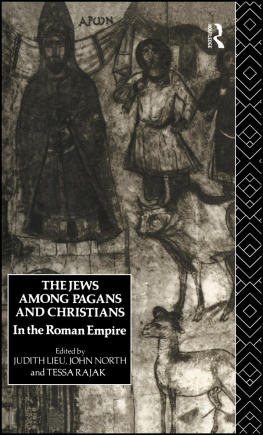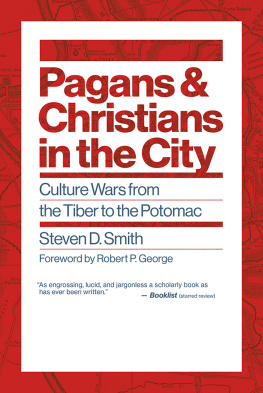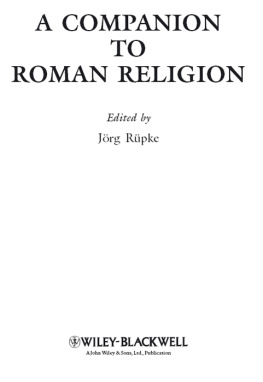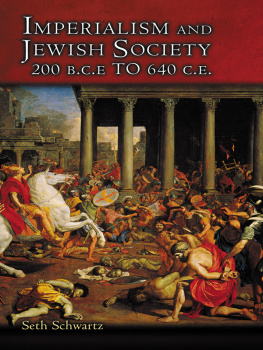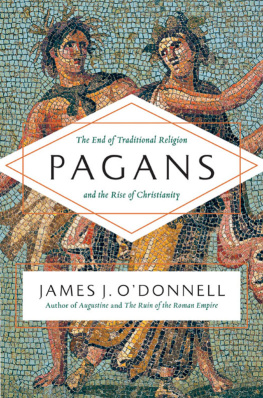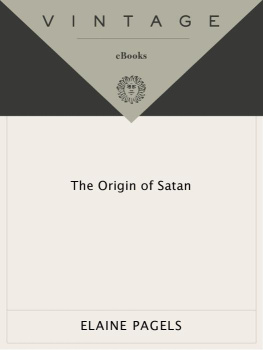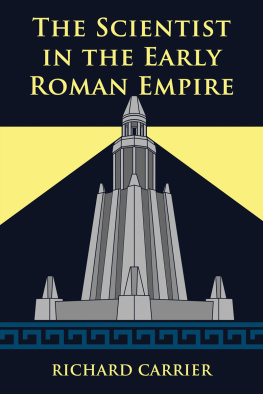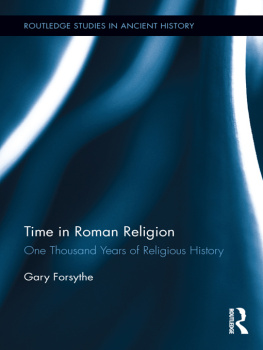The Jews Among Pagans and Christians

Dura Europos Synagogue: the defeat of the pagan gods (the ark in the land of the Philistines). Photo reproduced by kind permission of Yale University Art Gallery, the Dura Europos Collection.
The Jews Among Pagans and Christians
In the Roman Empire
Edited by
Judith Lieu , John North and Tessa Rajak
First publised 1992
by Routledge
2 Park Square, Milton Park, Abingdon, Oxon, OX14 4RN
Transferred to Digital Printing 2005
Simultaneously published in the USA and Canada
by Routledge
a division of Routledge, Chapman and Hall, Inc.
270 Madison Ave, New York NY 10016
Editorial material 1992 Judith Lieu, John North and Tessa Rajak; individual chapters 1992 individual contributors
Set in 10/12 Garamond by Intype, London
All rights reserved. No part of this book may be reprinted or reproduced or utilized in any form or by any electronic, mechanical, or other means, now known or hereafter invented, including photocopying and recording, or in any information storage or retrieval system, without permission in writing from the publishers.
British Library Cataloguing in Publication Data
The Jews among pagans and Christians in the Roman Empire.
1. Roman Empire. Judaism. History I. Lieu, Judith II. North, John III. Rajak, Tessa
296.2872
Library of Congress Cataloging in Publication Data
The Jews among pagans and Christians: in the Roman Empire/edited by Judith Lieu, John North, Tessa Rajak.
p. cm.
Includes bibliographical references and index.
1. JudaismHistoryTalmudic period. 10425. 2. ChristianityEarly church. ca. 30600. 3. RomeReligion. 4. Judaism-RelationsChristianity. 5. Christianity and other religions-Judaism. I. Lieu, Judith II. North, John A. III. Rajak, Tessa
BM177.J49 1992
296'.09'015dc20 9116866
ISBN 0-415-04972-5
Contents
Judith Lieu, John North and Tessa Rajak |
Tessa Rajak |
Martin Hengel |
Martin Goodman |
Judith Lieu |
Fergus Millar |
Han Drijvers |
Michael Weitzman |
John North |
Han Drijvers is Professor in the Institute of Semitic Languages and Literatures in the University of Groningen.
Martin Goodman is Reader in Jewish Studies in the University of Oxford.
Martin Hengel is Professor of New Testament and Early Judaism in the University of Tbingen.
Judith Lieu is Lecturer in Christian Origins and Early Judaism in King's College London.
Fergus Millar is Camden Professor of Ancient History in the University of Oxford.
John North is Senior Lecturer in Ancient History in University College London.
Tessa Rajak is Reader in Classics in the University of Reading.
Michael Weitzman is Lecturer in Hebrew and Jewish Studies in University College London.
The conception of this book, and most of its chapters, derive from a series of Ancient History seminars organized by the editors, at the Institute of Classical Studies in London. The plan was to work towards correcting the prevailing distorted picture of the religious history of the Roman Empire, a picture which springs essentially from privileging the rise of Christianity as the only truly significant event in that history. The distortion had concealed the Jewish role in a number of important respects, so the task was to restore the Jews to view. The roots of the distortion were theological as much as historical; we therefore felt from the beginning that, in order to tackle the 'triumphalist' view of Christian history, it was essential to call on scholars from at least three different disciplines, Ancient History, Jewish Studies and Theology (while Semitic Philology also had a part to play). The published version also reflects this wide variety of approaches. We have tried to make all the chapters as generally accessible as possible. All, in our view, make fundamental contributions to the task of reinterpretation. And, apart from the more general benefits of cross-fertilization between normally separate spheres of study, the justification for publishing the papers together is, precisely, that it is enlightening to read them together. The editors' shared concern with understanding the role of religion in society has, it is hoped, shaped the identity of the volume.
We are grateful to all who contributed to the seminars, not least to those who gave papers which could not be included in the present volume - Professor Stuart Hall, Professor E. P. Sanders and Dr Joan Taylor - and to those who took part in the very lively discussion. We owe thanks to Dr Loveday Alexander for her advice and to Saul Rajak for his draftsmanship. The seminar series was generously assisted by grants from the British Academy, the Institute of Jewish Studies of University College London and the Institute of Classical Studies, London.
| ANRW | Au/stieg und Niedergang der romischen Welt , edited by H. Temporini and W. Haase |
| CCL | Corpus Christianorum, Series Latina |
| CIJ | Corpus lnscriptionum ludaicarum , ed. J. B. Frey (Vol. 1, rev. edn B. Lifschitz) |
| Cod. Theod. | Codex Theodosianus = Theodosian Code |
| Const.Sirmond. | Constitutiones Sirmondianae |
| CPJ | Corpus Papyrorum ludaicorum , ed. V. Tcherikover, A. Fuks, M. Stern |
| CSCO | Corpus Scriptorum Christianorum Orientalium |
| EPRO | Etudes priliminaires aux religions orientales dans I' empire romaine |
| ILS | Inscriptiones Latinae Selectae , ed. H. Dessau |
| PL | Patrologia Latina , ed. J.-P. Migne |
| SEG | Supplementum Epigraphicum Craecum |
Transliteration of Greek, Hebrew and Syriac follows a simple phonetic system except where holding to an established custom or where the argument demands philological precision.


Judith Lieu , John North and Tessa Rajak
Any account of the religious history of the Roman Empire has to incorporate the victory of Christianity and the defeat of paganism, or - to put it in another way, which is perhaps only a little less one-sided - the conversion of the pagans. For the course of history, as for the contemporary victims of the conflict, it may well have been the outcome of the confrontation that mattered more than the details of its development. Meanwhile, scholars, both those writing from a theological perspective and those concerned with the study of ancient history, have tended to be satisfied, for their own different reasons, with this 'triumphalist' interpretation. As for the Jews, who were, of course, central to the beginning of the story and scarcely less so (as we shall show) later on, their viewpoint has tended to drop out of sight. A major purpose of this book is to look at the same story without the familiar preconceptions and with the Jewish role in mind, and to discover how different a pattern of development then emerges.

